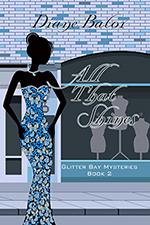Vanessa C. Hawkins Author Page
In the context of stories, it is often the case that a dash of ingenuity and a pinch of drive, combined with a healthy dose of creativity seasoned with levity and charm, can create a wonderful snack on a rainy pandemic day. The great thing about stories, is that no matter how much you indulge, you will never get fat, or feel bad about doing so.
Unless you're an author in need of an oven light. Or whose cupboards are bare of ingredients...
 |
| Darn... out of inspiration again. |
It happens to us all. Like wrinkles. Even very young authors—and I use the term young in reference to career and not to one's duration within the universe—who start out fresh and full of paragraphs will eventually find themselves struggling to mix up something that sates their palate. It is perhaps the eternal struggle for scribes everywhere, and without a Gordon Ramsay to hurl abuse at us until we write better, what is one to do?
Cry? Yes. That's fine. A good dose of sorrow is always good seasoning for a hearty tale.Carry a notebook for on the spot inspirations? Yes! You never know when you'll think of a new recipe.
Go for a walk, or listen to music or read or improve one's own world vision through others? Absolutely! Then write about what you know!
Though of course, it is always easier said than done, and until someone invents a Ducolax for writer's block, we may all feel up *%&# creek without a paddle sometimes.
 |
| How the heck do I pass this?! |
My solution was to add another cook to the kitchen, because after having a baby, going back to work, caring for the needs of my husband on top of all the other great and no-so-great things that goes along with being alive, I found myself too busy to deal with the enormous block that had been shoved up my tookus.
But—pun intended—I was lucky to have a secret weapon up my arsenal.
A good friend who I had been writing with for years, and who seemed inclined to write about dragons and romance and loose vampire police women in the 1920's prohibition era.
Sound spicy? We like to call it Urban Fantasy Fusion.
Not really, but I'm trying to keep with the cooking theme, so just go with it. Scarlet Fortune and Shad O'Rahin: two individuals embroiled up to their fangs in bootlegging shenanigans, monster hunters and strange affections. Coming to you piping hot September 2021, and lovingly prepared by word culinarian Tara Woodworth and Executive Chef Vanessa C. Hawkins!
 |
| We don't have the cover art done yet... |
Of course, what worked for me may not work for everyone. In the grand scheme of things, whether one decides to include another in their endeavors, scribble words on a page until they make sense, or cry in darkness of your room at night while second guessing everything you've ever done or written... an author's cookbook is defined by the author itself. Do what you need to do to keep serving up delights.
 |
| Poe cried a lot and he became famous... after he died... |
Fatten your readers with smut and romance, sadden them with drama and fright! Serve them up something disturbing, leave them feeling full and complete! It is impossible to satisfy every taste, but write for yourself first. And figure out who may like Urban Fantasy Fusion later.
Did I mention it comes out in September? Yeah?
Okay... just making sure.







































